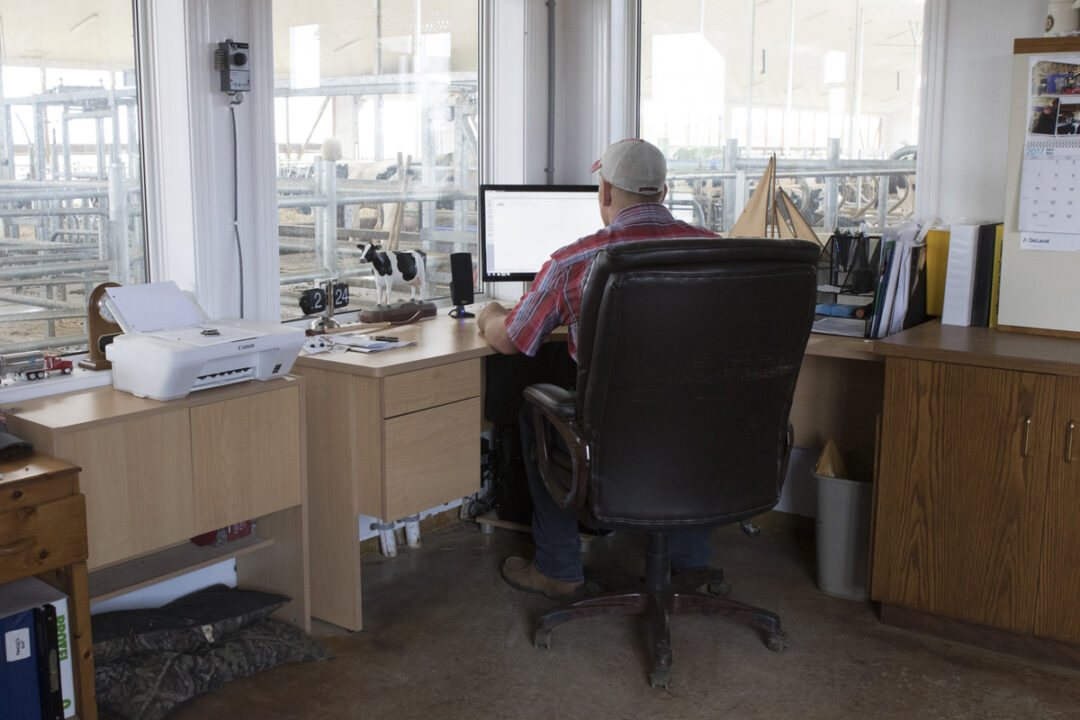When we hear the word “burnout,” we likely conjure up a bunch of images in our head: someone that has fallen asleep at their desk, a person that looks overly tired and seems a little too disorganized, the ever-popular rubbing of the temples with a deep sigh. If any of these images sound like something you’ve seen or experienced, I’m glad you’re reading. Burnout exists in every context of work. The work of agriculture is not immune to burnout.
We hear the word burnout a lot – but what does it actually mean? Is it just stress? A higher level of stress? Something beyond stress? Let’s take a moment to break all this down. Burnout is a form of exhaustion caused by constantly feeling swamped. Excessive emotional, physical and mental stress can make us feel overwhelmed, emotionally drained and unable to keep up with life’s demands. Burnout is more than just stress; it is the result of too much stress.
Signs of burnout
Across medical literature, five key symptoms are associated with burnout. A common symptom is increased anxiety. Even simple tasks or situations may feel overwhelming, and this may lead to avoidance or procrastination. A lack of sleep and general fatigue are also indicators of burnout. A constant feeling of exhaustion impacts all areas of our health: physical, mental and emotional. This can impact our ability to work and function day-to-day. Another symptom to look out for is a lack of creativity and purpose. Regardless of the work you do, feeling like you can express yourself and your ideals through your work is important. We all experience bad days or times when our drive is low; if creativity and purpose feel like a daily struggle, it may be a sign of burnout.
Burnout can also be signaled by emotional numbness or depression. Depression is more than just “feeling sad” all the time; most people describe it as a feeling of emptiness. Other symptoms of burnout can leave us feeling this way – lack of emotional feeling and recognition. Because of that, emotional numbness can lead to poor work ethic. Lastly, a cynical outlook is a symptom of burnout. We all have our moments where it can be hard to feel optimistic about our job, but if every day feels like a battle to understand the purpose of it all, you may be experiencing burnout.
Taking action against burnout
If you think you or someone you know is experiencing burnout, there are several strategies to try to alleviate it. It may be hard to find the motivation, but remember that you are an asset to your business. No one else is going to put your health first, so learn to advocate for yourself. Even if it means taking some time away from work or readjusting your schedule. This can sound harsh, but every job is replaceable. You, however, are not replaceable. Treat yourself like the high-value asset you are.
If there are work-specific stressors, evaluate your options. Discuss these concerns with someone. Think about schedule or expectation changes that may help take some pressure off. Again, advocate for what you need to be successful. This isn’t a sign of weakness but a sign of wisdom and foresight that what you’re doing currently is not sustainable. With that, it’s also important to seek support. Being able to talk about what we are experiencing and having others acknowledge it not as a fault but as a challenge can do a lot for our mental health. It’s likely the way you’re feeling is felt by others. Strong support systems promote emotional health and can help you get back to “you.”
Other actions you can take focus on self-care. Self-care is not just an event or one thing you do once a month to feel good. Self-care is any action you take with the intention of taking care of yourself. Think of self-care as a series of decisions you make every day. Will you choose to take care of yourself today? Try a relaxing activity such as yoga or listening to music you like. Find a way to get some physical activity outside of work every day. That could be going for a short walk, working out at the gym or going on a family bike ride.
Along with exercise, fuel your body. Eat well-balanced, nutrient-dense meals and snacks. Having enough energy from your diet can make a world of difference in how you feel. Getting enough sleep is also critical to having energy. Sleep is restorative and can protect our health. Even during busy seasons, getting seven to eight hours of sleep every night is critical and can help you work more efficiently during the day.
Mindfulness can reduce burnout
Mindfulness is the practice of focusing on your senses and feelings. A great way to start practicing mindfulness is by deep breathing. Take long breaths in through your nose and exhale through your mouth. As you are breathing, become aware of how your breath feels going in and out of you, what other sensations you notice and the emotions you are feeling. Becoming more mindful of our thoughts and feelings can help us recognize when we may be starting to feel burnt out. In addition, mindfulness is a great strategy to cope with burnout and general stress. It can be easy to ignore what our minds and bodies are telling us, especially when life and work feel too busy to focus on anything else.
Taking time to check in with ourselves and ground ourselves in the moment can provide relief and clarity. Mindfulness looks different for everyone, so find what works for you. Deep breathing, meditation, journaling and practicing gratitude are all great ways to increase mindfulness. I encourage you to find one way you can incorporate mindfulness into your life today. Your health will thank you.












